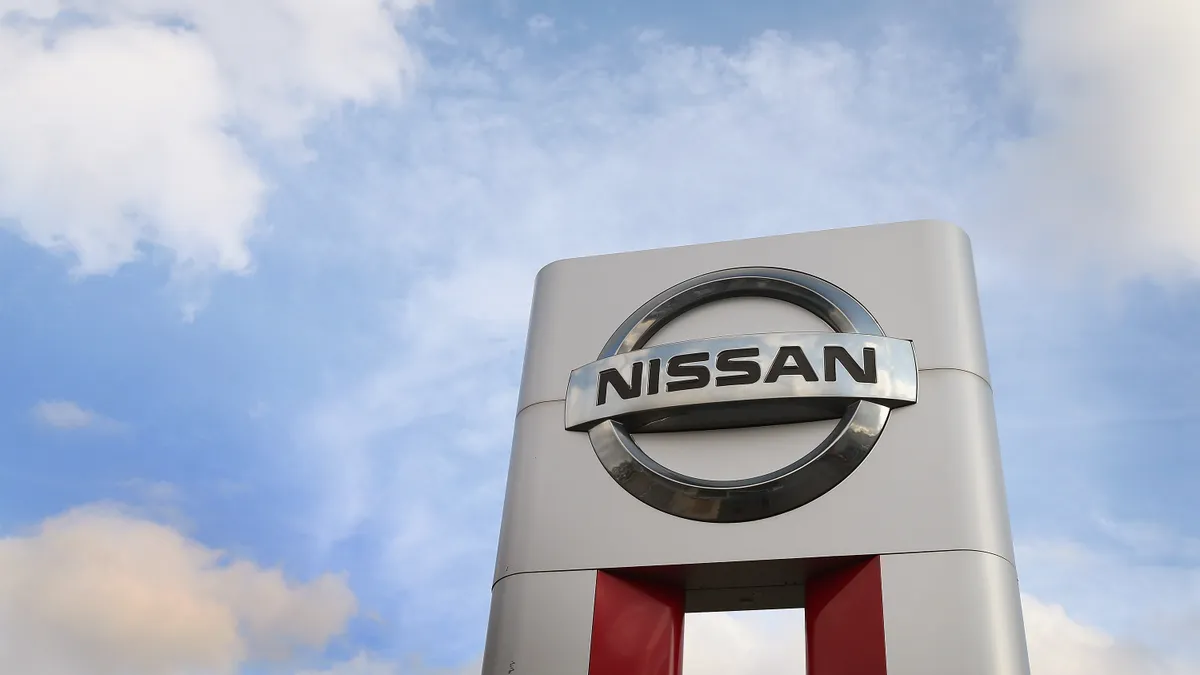Dive Brief:
- Nissan lowered its global sales volume forecast after semiconductor shortages and COVID-19 lockdowns in China impacted production more than expected, President and CEO Makoto Uchida said in a Nov. 9 earnings call.
- The automaker now expects to sell 3.7 million units in FY22, down from 4 million. Parts constraints and coronavirus restrictions caused output in China to drop 23.5% to 242,000 units, offsetting production gains in other countries, COO Ashwani Gupta said on the Q2 call.
- Nissan expects production to increase during the second half of FY22. Still, lockdowns in China mean that “total production has been unstable and remains uncertain looking ahead,” Uchida said.
Dive Insight:
Nissan is relying on a dual sourcing strategy to secure more semiconductors. The automaker has more than doubled supply of a major component that was creating shortages last fiscal year through the use of alternative chips.
However, supply chain challenges are expected to persist.
“Whether [alternative chips and dual sourcing] is going to satisfy all of our demand, I don’t think so,” Gupta said. “Even [in] 2023, we will enter with supply chain challenges especially driven by the semiconductors.”
Nissan’s suppliers continue to face higher costs for electricity, logistics, and raw materials. The automaker is working to continue dialogue with its suppliers to collaboratively address challenges “so that we'll be able to grow together,” Uchida said.
While suppliers look to ramp up production, chip shortages are expected to persist throughout the remainder of the year and into 2023. Automakers especially have had to get creative as their companies continue to face production delays, with businesses focusing on improving and strengthening supplier relationships.
General Motors and Ford, for instance, have been working with suppliers to increase transparency in the semiconductor supply chain. Similar to Nissan, earlier this year Honda also turned to dual sourcing, modifying its supply chain as severe flooding in Malaysia intensified chip shortages.
Regardless of production challenges and chip shortages exacerbated by lockdowns in China, Nissan remains optimistic.
“While uncertain conditions may persist, we have taken effective steps to contract the impact of semiconductor shortages and recover production during this fiscal year,” Gupta said.














